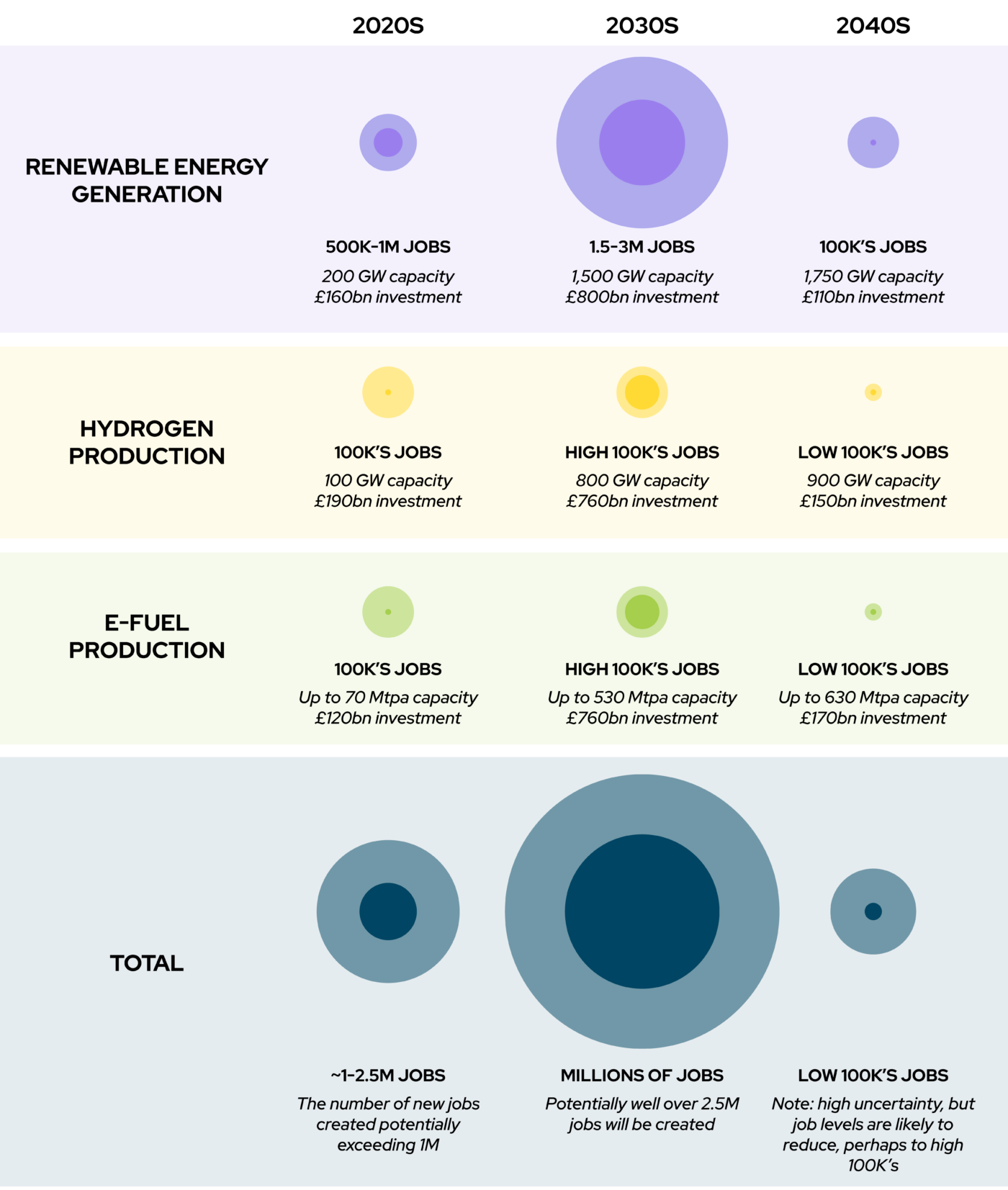|
Over four million clean jobs could be created by the global shipping industry in the coming decades as the push to decarbonize gains momentum, according to the Global Maritime Forum (GMF).
In a new report, the industry coalition suggests that the maritime sector’s transition to zero-emission marine fuels will be instrumental in generating new jobs. If the transition goes as expected, it could see the number of people employed by shipping and the maritime supply chain double from two million to four million by 2050. Critical opportunities are expected to emerge across the three main areas - namely renewable energy generation, hydrogen production and e-fuel production.
A majority of the new jobs - between 1.5 million and three million - could be created in the 2030s, a decade in which the industry agrees will be a defining time in the quest to cut shipping emissions. Over the period, adoption of alternative fuels is projected to significantly expand, with e-fuels based on hydrogen taking the lead.
Projections show that shipping’s demand for e-fuels could rapidly scale to over 500 million tons by 2040, rising to 600 million tons by 2050. Meeting that demand will require an additional 2,000 GW of renewable energy generation capacity from wind and solar and 1,000 GW of hydrogen production capacity by 2050.
Massive investments, measuring in the trillions of dollars, will be required to support the development of renewable infrastructure, hydrogen production, and fuel production facilities for e-ammonia for shipping. This flood of capital investment will have a dramatic impact on the creation of green jobs, and has the potential to create benefits for the wider economy.

Courtesy Global Maritime Forum
“The analysis demonstrates the sheer scale of the potential to create large numbers of highly-skilled green jobs, in this instance driven by a single fuel. Many of these jobs will also be transferable to other sectors – supporting further decarbonization beyond shipping,” said Jesse Fahnestock, GMF Director of Decarbonization.
The most significant contributor to overall job creation is the building up of renewable energy capacity that creates jobs across three main markets. The first is the manufacturing of component parts from raw materials, and the second is in the construction and installation of generation infrastructure. The last source is in the operations and maintenance of facilities.
The report reckons that in this decade, between 500,000 and one million green jobs could be linked to renewable generation deployment for e-fuel production. In the 2030s, there could be between 1.5 and 3 million renewables jobs although it is more likely to be the lower end of the range (1.5 million), as the deployment of renewables becomes more labor efficient.
In the 2040s, job numbers are less clear due to the uncertainty in renewables costs and labor intensity. The number of jobs declines when compared to the 2030s as the rate of renewable generation deployment reduces.
The significant role that scalable zero emission fuels could play in job creation offers more incentives for the shipping industry, which is currently responsible for three percent of global CO2 emissions, to decarbonize.
https://maritime-executive.com/article/green-shipping-coiuld-launch-massive-jobs-boom
|